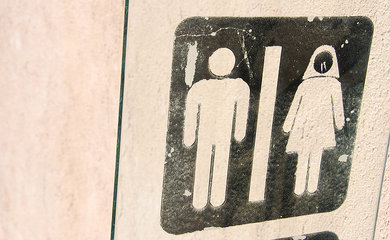In Sydney, women’s shelters are days away from being decimated. 15.39 million dollars has been allocated to homelessness services, with only 1.1 million of that going to women’s services. And no, they were not allowed to apply for funding. This goes against everything we know about best practice, with many women’s life experiences and histories meaning it’s simply untenable for them to be in mixed shelter environments.
Under the New South Wales state government’s Going Home Staying Home reforms, there are no provisions for many specific communities affected by homelessness, not women who have survived childhood violence and neglect, not people with mental illnesses, not people with substance abuse issues. As SOS Women’s Services spokesperson Kate Timmins said to Guardian Australia of this new generalist tender funding process, ‘If you work in our sector that is just unfathomable’.
As Roxanne McMurray of the Leichhardt Women’s Community Health Centre told the Australian Broadcasting Association, ‘340 existing services are tendering for 140 new services’. This means that, collectively, women’s shelters are going to have one quarter of their previous funding, allocated for women experiencing domestic and family violence. This staggeringly tiny sum is going to see provisions for about 500 women and children, whereas 2000 were previously sheltered in Sydney. There is going to be nowhere for 1500 people to turn.
There’s more to it: particularly marginalised women are having a rough time accessing shelters as it is. Aboriginal and Torres Strait Islander women face high rates of violence and fewer culturally appropriate and reachable services, while many shelters do not provide accommodation that suits the needs of disabled women. In an environment this desperate, funding cuts are unconscionable.
How on earth is the NSW government pushing these reforms as a good thing? The money is going to be reallocated to rural and regional services. It’s wonderful that more attention is going to those areas, but the women who need these services are often seeking them in the city, where it’s easier to blend in and access resources. Plus, the city services are underfunded as it is. People are being turned away from specialised Sydney shelters on a daily basis, and sometimes being on the street is the only option when the alternative is a place in a general shelter in which you or your kids are even less safe.
Secondly, speaking at a recent forum on the issue, Community Services Minister Gabrielle Upton said that the ‘reforms will increase the focus on early intervention, make it easier for people to get help’. Again, this is a heartening focus with a false trade-off. Prevention needs to work alongside strong support services for people who are past the intervention stage, just like the country needs funding alongside the city. If prevention fails, there’s going to be nowhere to go with up to twenty Sydney women’s shelters about to drop off the map.
This can be stopped. The F Collective has a petition you can sign. You can visit the SOS Women’s Services website, which has information on who you can write to, how to donate to support the campaign, and posters you can download. Funding is being reduced from 30 June, but the reforms have yet to be finalised. After decades of organising, lobbying, struggle and care, these women’s refuges need widespread support before it all crumbles. Spread the word.

